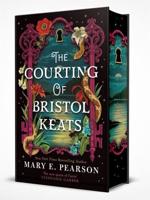Publisher's Synopsis
ERNEST A. BOYD has established himself as one of the ablest critics and interpreters of modern Irish literature. His exhaustive book on the Irish Renascence is probably the most satisfactory study of the subject which we have in America. In "Appreciations and Depreciations" Mr. Boyd has written six essays which emphasize rather the personal qualities and historical values of the men with whom he deals than their literary accomplishments. In particular he analyzes the attitude and relation of each toward nationality. Thus Standish O'Grady's political adventures with the Land Leaguers and the Landlords in 1881, -when he "added intellectual insult to pecuniary injury by calling upon men to undertake the finest and most arduous tasks of their class just when they had added martyrdom to innumerable other grievances,"-receives the attentions usually accorded his furtherance of the Renascence.
Edward Dowden, whose critical standards were so rigidly imported that he had eyes and saw not the new richness at hand until too late, and then but vaguely, is portrayed as a "lonely Irishman" with a reproach which somehow contrives to be sympathetic. John Eglinton's chapter is a penetrating exposition of the effect which the dogmatism of his people has had upon that uncompromising scholar.
Perhaps the most lively and remarkable is the study of "Bernard Shaw: An Irish Protestant." To say anything original about Shaw, who has, fortunately, rather faded from notice of late, is in itself an accomplishment. But Mr. Boyd, by considering him from the Irish standpoint as an exemplification of the anomaly prevailing in a certain vociferous quarter of Ireland - too Irish to expatriate itself completely and too stubborn to compromise, -has managed to do so, and that very entertainingly. His article is worth reading if only for the diverting account of the reception accorded "Candida" and "Mrs. Warren's Profession" by the French. Its greatest interest, however, lies in the relation which Mr. Boyd discovers between the "chaos of clear ideas" which persists as the final effect of Shaw's work, and his inevitable middle ground position as an exile from the Irish spirit, who is unable to make himself at home with any other.
A. E., who translates mysticism into economic reform, and Lord Dunsany, the fantaistite in whom "the Biblical spirit replaces the Gaelic tradition which usually supplies the element lacking through the absence of the former," are the two remaining subjects.
-The Bellman, Vol.25, July, 1918
























